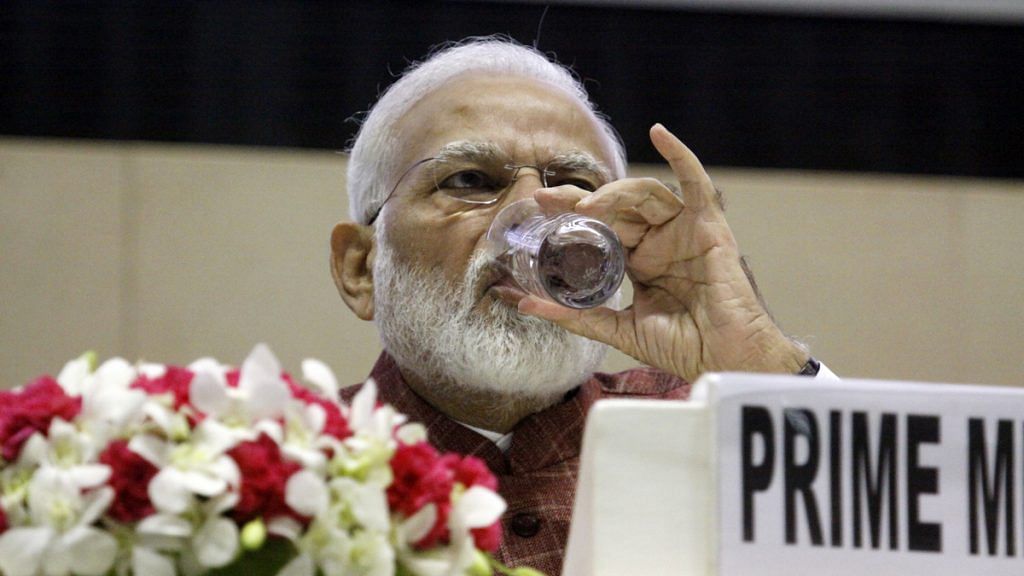It all began in early 2016 when the Narendra Modi government decided, without any reason, to sit on the recommendation of the Supreme Court of India to transfer three judges. These were the transfers of Uttarakhand High Court Chief Justice K.M. Joseph to Andhra Pradesh & Telangana High Court as chief justice, Justice Valmiki Mehta of the Delhi High Court to the Andhra Pradesh and Telangana High Court, and Justice M.R. Shah of the Gujarat High Court to the Madhya Pradesh High Court.
While Chief Justice Joseph and Justice Shah are now judges of the Supreme Court, Justice Mehta passed away in March this year.
For over a year, at least until Justice Tirath Singh Thakur was the Chief Justice of India, the transfers remained a source of major friction between the higher judiciary and the Modi government.
For various reasons, none ever put in writing, the Modi government wanted the Supreme Court collegium to rescind the transfer orders.
After CJI Thakur’s retirement, the new collegium finally acquiesced and quietly withdrew the recommendations. It has been downhill ever since.
Also read: Supreme Court is going back on promise of transparency, building case for Modi govt’s NJAC
Another Justice, another SC failure
The latest example being Gujarat High Court Judge Akil Abdulhamid Kureshi, whose elevation as the chief justice of Madhya Pradesh High Court has been stalled by the Modi government for almost a year now.
While the Supreme Court Collegium had initially recommended Justice Kureshi’s appointment as the chief justice of Madhya Pradesh High Court, it later decided to send him to a much smaller Tripura High Court after the Modi government twice rejected the collegium’s earlier recommendation.
Such abject harassment of a senior judge doesn’t bode well for a key characteristic associated with the higher judiciary – independence. This, unfortunately, is the new normal, one where the Centre refuses to dispose of what the judiciary (collegium) proposes, and instead, the judiciary disposes what the Modi government proposes.
Former Supreme Court Judge Madan B. Lokur is right to say that the National Judicial Appointments Commission (NJAC), which a Constitution bench of the Supreme Court had struck down as being unconstitutional, is back via the back door – with the silent support of the weakened collegium.
That the Modi government has repeatedly managed to gets its way on judges’ appointments and transfers in the higher judiciary is a poor reflection on the judges who sit in the collegium.
Also read: Recusal has become a selective call of morality for Supreme Court judges
Why Justice Kureshi’s case is significant
The tussle between the higher judiciary and the Centre over judges’ appointments is not a new phenomenon. But the manner in which the Modi government has tried to capture the narrative over the yet-to-be-cleared appointment of the judge as chief justice is certainly new.
What makes it different is also the way the Modi government tried to actually deny Justice Kureshi the post.
His appointment, which is just a matter of a few days now, will not be remembered as a great day for our judicial set-up; in fact, it will be the day the collegium’s independence will lie in tatters, suggesting that the damage to the institution’s reputation could well be permanent.
But in an age when fresh controversies erupt or are manufactured at the drop of a hat, the manner in which Justice Kureshi’s appointment was (mis)handled will also be forgotten soon, overtaken by another case. And, make no mistake: the Modi government knows that the collegium, for whatever reason, is not going to push back.
That is why Justice Kureshi’s case won’t be the last one where we will see the collegium bow down to the arbitrary diktat of the Modi government.
Also read: Modi govt red-flags J&K lawyer who converted to Islam but SC ignores & picks her as judge
A history of sorts
While the case of Justice Kureshi has made headlines, it isn’t the only one. There are several other instances of the central government successfully stalling or, in cases where the collegium didn’t agree with its stand, sitting on recommendations for longer durations.
On 15 October, the Supreme Court collegium, for the third time, reiterated its recommendation to elevate Karnataka judicial officer P. Krishna Bhat as a judge of the Karnataka High Court.
His appointment has been delayed due to objections, many of them rejected by the Modi government after due process, including inquiry, by the collegium. His name was first recommended for elevation in 2016.
Another case that merits a mention is that of Justice Dama Seshadri Naidu, who, in September 2017, was recommended to be transferred back to his parent high court – Andhra Pradesh. However, the Centre chose not to clear the proposal, following which the collegium, in January this year, modified its recommendation and decided to shift him to the Bombay High Court.
In almost all cases like Justices Kureshi, Naidu and district and sessions judge Krishna Bhat, the collegium’s reputation took a severe hit. There’s little to suggest that things will change any time soon.
The author is a senior journalist. Views are personal.
